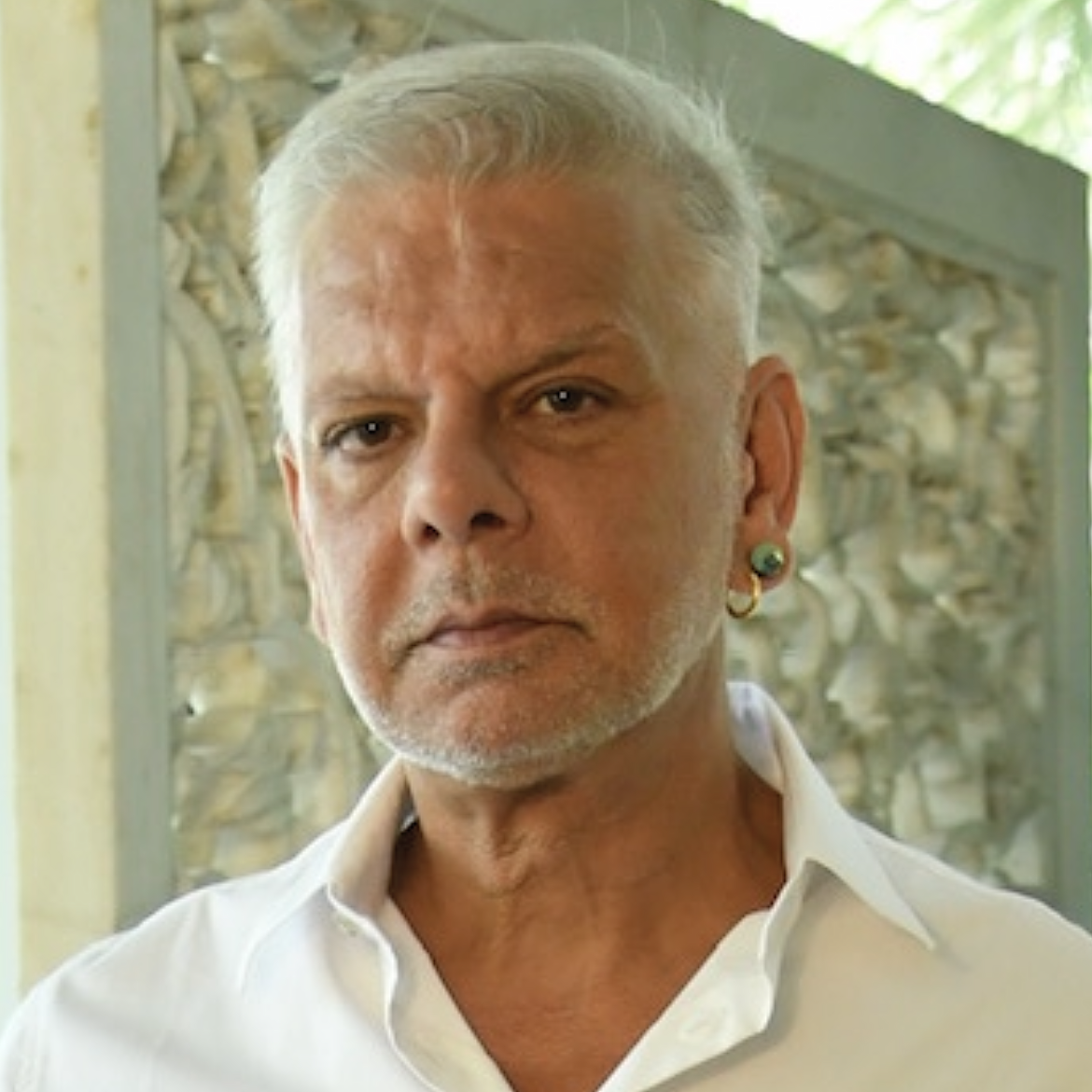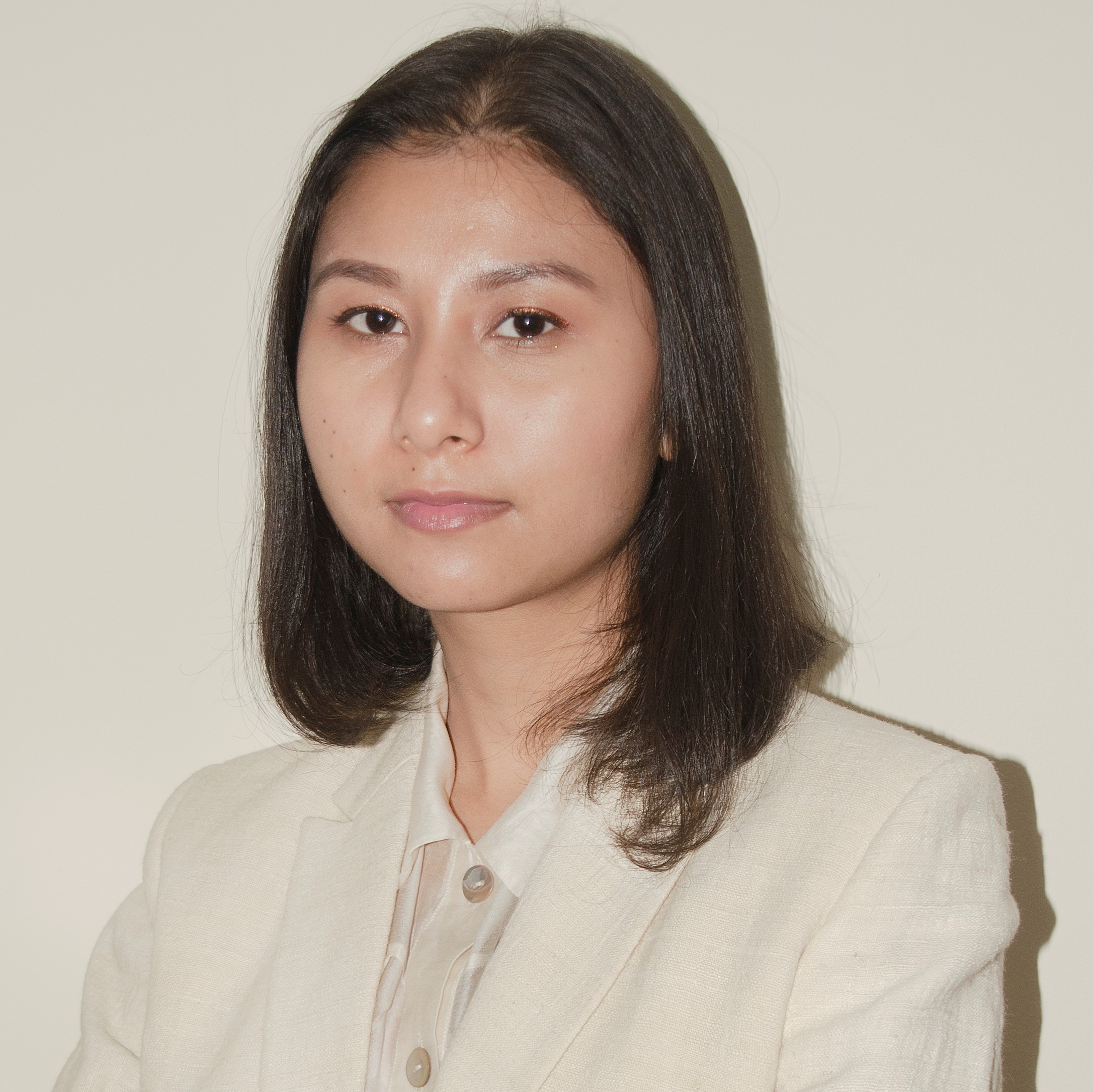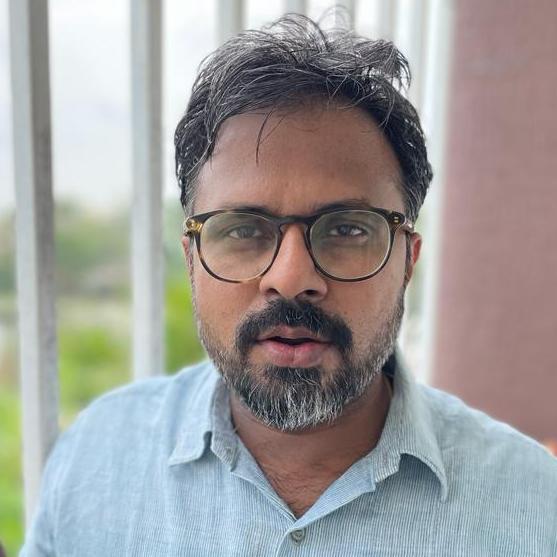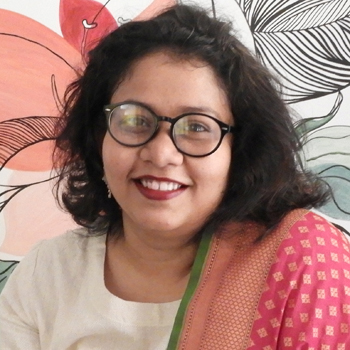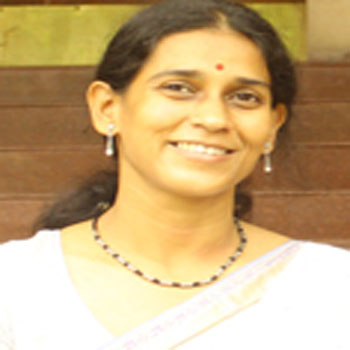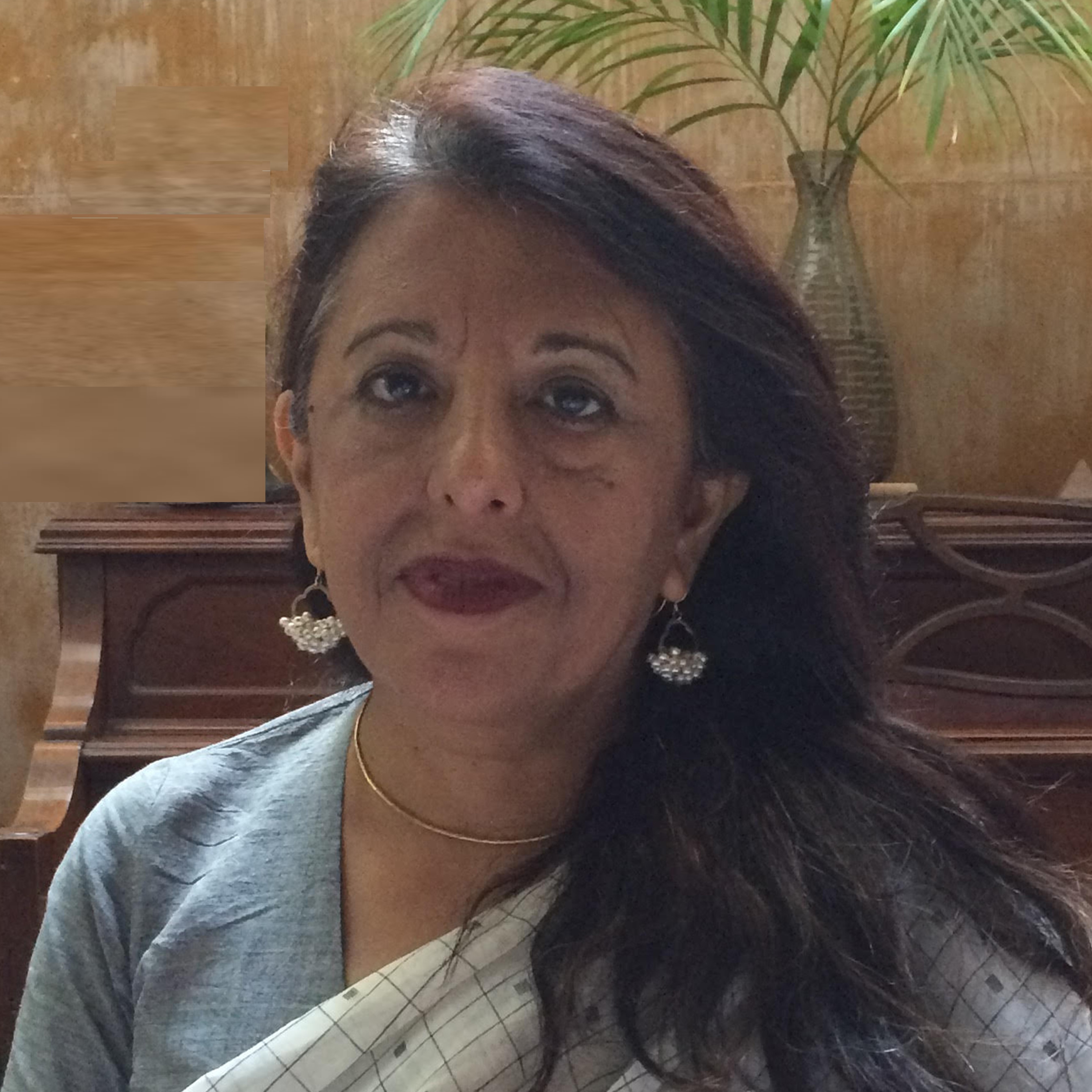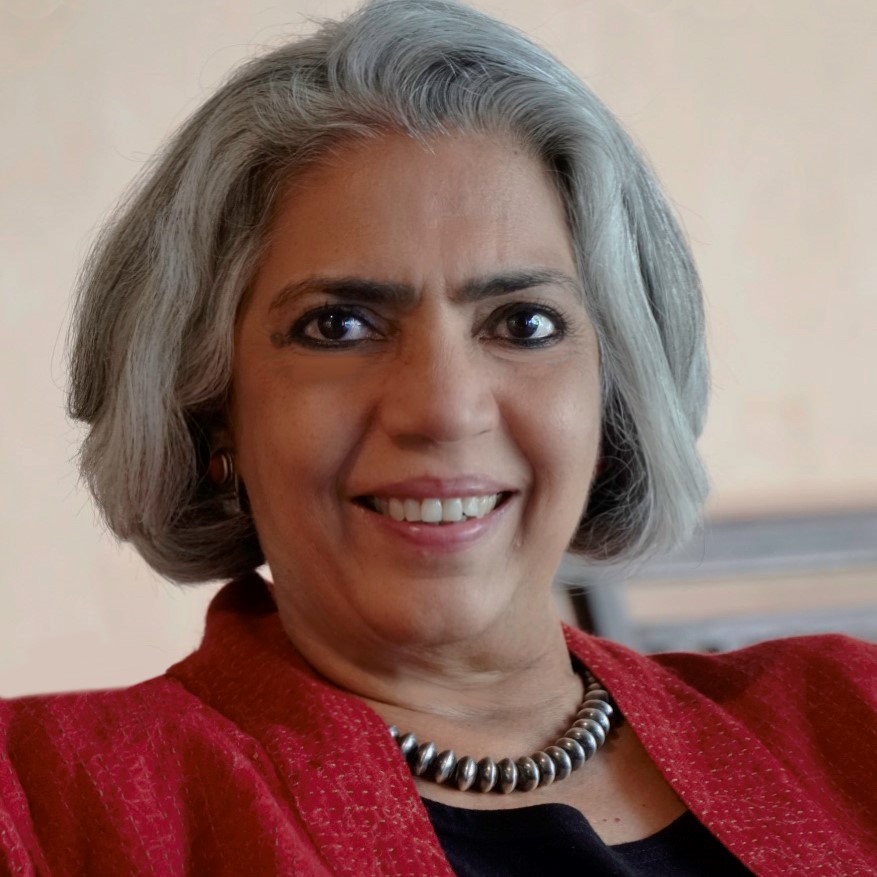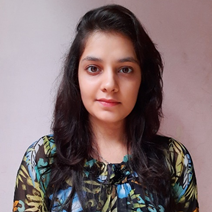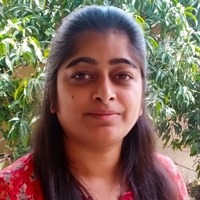JOURNAL ARCHIVE
Sadr, Ayeshe,
Ayeshe Sadr is a design student at Srishti, Bangalore. She plans on becoming a Textile Designer and is on a year long sabbatical during which she has worked with Craft Council of India and Craft Revival Trust.
Ayeshe Sadr is a design student at Srishti, Bangalore. She plans on becoming a Textile Designer and is on a year long sabbatical during which she has worked with Craft Council of India and Craft Revival Trust.
Sagar, Hemant,
Hemant Sagar is a renowned fashion designer and co-founder of the Indo-French fashion house Lecoanet Hemant. Born in New Delhi to a German mother and an Indian father, Hemant spent his childhood in India. He pursued his passion for design and dressmaking and embarked on a successful career in the fashion industry. With a strong foundation in couture from the Ecole de la Chambre Syndicale de Couture Parisienne in Paris, Hemant's work reflects a unique blend of Indian and French aesthetics. The co-founder of Lecoanet Hemant, an Indo French fashion house established in the early 80s. As a creative force behind the parent brand and its other labels, including 'Genes,' a contemporary fashion brand catering to urban style seekers. Hemant has been the recipient of many highly respected awards including the Golden Thimble known as Le Dé d'or (the top accolade for Haute Couture which equates to the Oscar equivalent in the Couture world). They also received the Swarovski Creation prize in 2005 and the Designer of the year award in 2007 in Miami. Their work is also exhibited in several permanent international collections including the Victoria and Albert Museum in London and the Musée des Arts de la Mode, Paris. Hemant’s life changed when he moved to Germany at the age of fifteen, confronted with notions of ecology and sustainability unknown to him until then. This discovery led to the ecological collections in the 90s and its importance became evident in the establishment of 'Ayurganic,' a brand wholly dedicated to sustainable practices. By incorporating eco-friendly materials and ethical production methods, he has successfully brought awareness to the importance of environmentally conscious fashion. The Ramie Project is a natural continuation of the thought procedure.
Hemant Sagar is a renowned fashion designer and co-founder of the Indo-French fashion house Lecoanet Hemant. Born in New Delhi to a German mother and an Indian father, Hemant spent his childhood in India. He pursued his passion for design and dressmaking and embarked on a successful career in the fashion industry. With a strong foundation in couture from the Ecole de la Chambre Syndicale de Couture Parisienne in Paris, Hemant's work reflects a unique blend of Indian and French aesthetics. The co-founder of Lecoanet Hemant, an Indo French fashion house established in the early 80s. As a creative force behind the parent brand and its other labels, including 'Genes,' a contemporary fashion brand catering to urban style seekers. Hemant has been the recipient of many highly respected awards including the Golden Thimble known as Le Dé d'or (the top accolade for Haute Couture which equates to the Oscar equivalent in the Couture world). They also received the Swarovski Creation prize in 2005 and the Designer of the year award in 2007 in Miami. Their work is also exhibited in several permanent international collections including the Victoria and Albert Museum in London and the Musée des Arts de la Mode, Paris. Hemant’s life changed when he moved to Germany at the age of fifteen, confronted with notions of ecology and sustainability unknown to him until then. This discovery led to the ecological collections in the 90s and its importance became evident in the establishment of 'Ayurganic,' a brand wholly dedicated to sustainable practices. By incorporating eco-friendly materials and ethical production methods, he has successfully brought awareness to the importance of environmentally conscious fashion. The Ramie Project is a natural continuation of the thought procedure.
Saikia, Manjushree,
Manjushree Saikia, originating from the upper valleys of Assam, developed a strong affinity for Assam Textiles and folk cultures during her upbringing. Her intrigue for cultures and craftsmanship led her to textiles and eventually the world of fashion. Graduating from the National Institute of Fashion Technology (NIFT) as a Textile Designer in 2016, Manjushree began her journey by exploring various craft clusters across India. Engaging with organic dye, hand spinning, and hand weaving groups, she was deeply impressed not only by their skill but also by their humility and values. This experience ignited her awareness of a designer's responsibility towards Indian artisans and society. In 2018, she founded Ura Maku, a conscious clothing line aimed at giving a fresh design perspective to her native textiles. Through Ura Maku, she achieved recognition such as the Grazia Young Fashion Award for Urbanwear. She collaborates with textiles enthusiasts and delivers guest lectures at fashion colleges, often alongside Ura Maku.
Manjushree Saikia, originating from the upper valleys of Assam, developed a strong affinity for Assam Textiles and folk cultures during her upbringing. Her intrigue for cultures and craftsmanship led her to textiles and eventually the world of fashion. Graduating from the National Institute of Fashion Technology (NIFT) as a Textile Designer in 2016, Manjushree began her journey by exploring various craft clusters across India. Engaging with organic dye, hand spinning, and hand weaving groups, she was deeply impressed not only by their skill but also by their humility and values. This experience ignited her awareness of a designer's responsibility towards Indian artisans and society. In 2018, she founded Ura Maku, a conscious clothing line aimed at giving a fresh design perspective to her native textiles. Through Ura Maku, she achieved recognition such as the Grazia Young Fashion Award for Urbanwear. She collaborates with textiles enthusiasts and delivers guest lectures at fashion colleges, often alongside Ura Maku.
Sanyal, Amba,
Amba Sanyal studied at the College of Art (New Delhi) and the Beaux Arts (France). She coordinated the documentation project 'Saris of India' under the Development Commission (Handlooms) and co-authored 'Saris of India - Madhya Pradesh'. Since the 60s Amba has worked with rural communities in craft development and design intervention as well as art education with village school children. At present she works as a costume designer for film and theatre and teaches costume design. She works extensively with school and college students running theatre and art appreciation workshops.
Amba Sanyal studied at the College of Art (New Delhi) and the Beaux Arts (France). She coordinated the documentation project 'Saris of India' under the Development Commission (Handlooms) and co-authored 'Saris of India - Madhya Pradesh'. Since the 60s Amba has worked with rural communities in craft development and design intervention as well as art education with village school children. At present she works as a costume designer for film and theatre and teaches costume design. She works extensively with school and college students running theatre and art appreciation workshops.
Satish, Poludas Nagendra,
Founder and Principal Designer, KORA Design Collaborative, Hyderabad. A Print maker, a Design Graduate from NID, Ahmedabad. Satish has an extensive background and expertise working with the textile and craft sectors in the states of Andhra Pradesh, Telangana, Kerala, Jharkhand, Bengal, Orissa and Bihar. KORA Design Collaborative is a design and research practice initiated by a small group of designers, technicians and master crafts persons. Satish leads KORA. KORA’s work is a practical application of the principals of ecology, which sees people as crucial to any successful environmental projects. The work mainly focuses on understanding available natural resources, developing local skills and setting up of decentralized, least "capital-energy" requiring systems that would create sustainable livelihood to hundreds of people. In the process one try to emphasize and establish deep ecological, cultural and historical links between people and the eco- systems.
Founder and Principal Designer, KORA Design Collaborative, Hyderabad. A Print maker, a Design Graduate from NID, Ahmedabad. Satish has an extensive background and expertise working with the textile and craft sectors in the states of Andhra Pradesh, Telangana, Kerala, Jharkhand, Bengal, Orissa and Bihar. KORA Design Collaborative is a design and research practice initiated by a small group of designers, technicians and master crafts persons. Satish leads KORA. KORA’s work is a practical application of the principals of ecology, which sees people as crucial to any successful environmental projects. The work mainly focuses on understanding available natural resources, developing local skills and setting up of decentralized, least "capital-energy" requiring systems that would create sustainable livelihood to hundreds of people. In the process one try to emphasize and establish deep ecological, cultural and historical links between people and the eco- systems.
Scott, Victoria,
Victoria Scott was born in Bluffton, Indiana in 1943, and graduated from Bluffton High School like her mother before her. She was deeply interested in art from an early age. In 1965, she graduated in art history from Smith College where her interest focused on African art. She was profoundly influenced by the trilogy of books on the subject by anthropologist/philosopher Robert Plant Armstrong and she went to Dallas to study with him. Shortly thereafter he contracted cancer and passed away - a tragic event that was deeply disturbing and disorienting. The scant literature on African art in those days focused on wood sculpture, always with the caveat that colonialism and "development" degraded and distorted the tradition. Victoria refused to believe that Africa no longer produced art; she was correct. She spent the 1970s in Nigeria, and in Osogbo, a Yoruba town 80 miles north of Lagos, she found a unique "folk art" which was at its most vibrant during this time. She collected Osogbo art and documented the emerging of post-colonial culture. In 1980, Victoria returned to the U.S. where she raised her two children and continued to promote the work and careers of Osogbo artists. In 1990, she relocated from New York to Santa Fe. She returns to West Africa periodically to collect art and textiles. Currently she is putting work online to sell and tell the story of modern Nigerian "folk art."
Victoria Scott was born in Bluffton, Indiana in 1943, and graduated from Bluffton High School like her mother before her. She was deeply interested in art from an early age. In 1965, she graduated in art history from Smith College where her interest focused on African art. She was profoundly influenced by the trilogy of books on the subject by anthropologist/philosopher Robert Plant Armstrong and she went to Dallas to study with him. Shortly thereafter he contracted cancer and passed away - a tragic event that was deeply disturbing and disorienting. The scant literature on African art in those days focused on wood sculpture, always with the caveat that colonialism and "development" degraded and distorted the tradition. Victoria refused to believe that Africa no longer produced art; she was correct. She spent the 1970s in Nigeria, and in Osogbo, a Yoruba town 80 miles north of Lagos, she found a unique "folk art" which was at its most vibrant during this time. She collected Osogbo art and documented the emerging of post-colonial culture. In 1980, Victoria returned to the U.S. where she raised her two children and continued to promote the work and careers of Osogbo artists. In 1990, she relocated from New York to Santa Fe. She returns to West Africa periodically to collect art and textiles. Currently she is putting work online to sell and tell the story of modern Nigerian "folk art."
Sekh, Tanjima Kar,
Tanjima Kar Sekh is an art, history and culture enthusiast, holds a Master’s degree in Art History from National Museum Institute. She is an artist inspired by traditional artistic practices. She worked as a part-time Assistant Professor at the College of Art, Delhi. Currently, she is a research scholar at the Department of History & Culture, Jamia Millia Islamia.
Tanjima Kar Sekh is an art, history and culture enthusiast, holds a Master’s degree in Art History from National Museum Institute. She is an artist inspired by traditional artistic practices. She worked as a part-time Assistant Professor at the College of Art, Delhi. Currently, she is a research scholar at the Department of History & Culture, Jamia Millia Islamia.
Seth, Dr. Manvi,
Manvi Seth is Dean, NMI and Professor & Head in the Department of Museology, National Museum Institute. At the National Museum Institute her major responsibilities are - teaching, supervising PhD programmes, conducting research projects, organising national and international seminars and conferences and conducting capacity building programmes for the in-service professionals in the museum sector. She has been awarded two prestigious grants jointly with the School of Museum Studies, University of Leicester, from the British Academy and UGC-UKIERI. She has conceptualized and coordinated research projects in the areas of Visitor Studies and Museum Education. She has a major research project ongoing on the documentation of Intangible Cultural Heritage in Ladakh and Uttar Pradesh, India. She has also been organizing Museum Education, Museum Outreach and Outreach to villages programmes. She has coordinated and conducted various international and national in-service training programmes. She has coordinated international and national seminars and conferences. In 2015 she was the Convener of the annual conference 2015 of CIDOC, “Documenting Diversity – Collections, Catalogues and Context”. In 2012 she organized an International Seminar on ‘Museums and Changing Cultural Landscape’ in Ladakh. She has also curated many exhibitions. Amongst the various exhibitions she has curated, the prominent ones are – ‘First Frames –In the Footsteps of Early Explorers’ a photographic exhibition aimed to bring to the people of Ladakh some of the earliest photographs of Ladakh and Tibet; a Tactile Exhibition titled 'Ehasas: Senses and Images' for the visually impaired section of Museum Target Audience; and ‘Astitav-a search for our identity’, an exhibition on heritage awareness. Prof. Seth is the recipient of prestigious Nehru Trust UK Visiting Fellowship. She has recently been awarded the “Best Professor’ award by the Dewang Mehta National Education Awards. She is the Chair, Intangible Cultural Heritage Working Group, CIDOC.
Manvi Seth is Dean, NMI and Professor & Head in the Department of Museology, National Museum Institute. At the National Museum Institute her major responsibilities are - teaching, supervising PhD programmes, conducting research projects, organising national and international seminars and conferences and conducting capacity building programmes for the in-service professionals in the museum sector. She has been awarded two prestigious grants jointly with the School of Museum Studies, University of Leicester, from the British Academy and UGC-UKIERI. She has conceptualized and coordinated research projects in the areas of Visitor Studies and Museum Education. She has a major research project ongoing on the documentation of Intangible Cultural Heritage in Ladakh and Uttar Pradesh, India. She has also been organizing Museum Education, Museum Outreach and Outreach to villages programmes. She has coordinated and conducted various international and national in-service training programmes. She has coordinated international and national seminars and conferences. In 2015 she was the Convener of the annual conference 2015 of CIDOC, “Documenting Diversity – Collections, Catalogues and Context”. In 2012 she organized an International Seminar on ‘Museums and Changing Cultural Landscape’ in Ladakh. She has also curated many exhibitions. Amongst the various exhibitions she has curated, the prominent ones are – ‘First Frames –In the Footsteps of Early Explorers’ a photographic exhibition aimed to bring to the people of Ladakh some of the earliest photographs of Ladakh and Tibet; a Tactile Exhibition titled 'Ehasas: Senses and Images' for the visually impaired section of Museum Target Audience; and ‘Astitav-a search for our identity’, an exhibition on heritage awareness. Prof. Seth is the recipient of prestigious Nehru Trust UK Visiting Fellowship. She has recently been awarded the “Best Professor’ award by the Dewang Mehta National Education Awards. She is the Chair, Intangible Cultural Heritage Working Group, CIDOC.
Sethi, Dr. Ritu,
Dr. Ritu Sethi is the founder-trustee of the Craft Revival Trust and editor of Global InCH, the online international journal of intangible cultural heritage. In addition she oversees the Asia InCH Encyclopaedia. Both globally recognized as the leading repositories of knowledge on intangible cultural heritage. Sethi has authored and edited ‘Embroidering Futures- Repurposing the Kantha’, ‘Designers Meet Artisans - A Practical Guide’ (translated into Spanish and French), ‘Painters, Poets, Performers – The Patuas of Bengal’; besides her other writings in national and international publications. Her research interests lie in tracing the evolution of textile and craft traditions from the Colonial to more recent practice, reflecting on its impact on culture, heritage and on living practices. She serves on the Advisory Committee of the National Crafts Museum and Hast Kala Academy, Ministry of Textiles; the ICH committee (ABHICHU) SNA, Ministry of Culture; on the INTACH Heritage craft and community division; CII Task Force on Art and Culture, besides several other institutions in India. She is on the Advisory board of international organizations on culture and heritage including IRCI UNESCO Cat II centre Japan. She Chaired the UNESCO Consultative Body examining nominations to the ICH of the World, UNESCO, Paris; was on the advisory board of CRIHAP UNESCO Cat II centre in China; on the Steering Committee for the 12th Five year Plan for Handlooms and Handicrafts, Planning Commission; served as a Consultant to UNESCO on Post Disaster Need Assessment on ICH; board member of the Handloom and Handicraft Export Corporation (HHEC), Government of India; Indira Gandhi Rashtriya Manav Sangrahalaya Samiti (National Museum of Man), Bhopal; Centre for Cultural Resource and Training (CCRT), Ministry of Culture and other institutions.
Dr. Ritu Sethi is the founder-trustee of the Craft Revival Trust and editor of Global InCH, the online international journal of intangible cultural heritage. In addition she oversees the Asia InCH Encyclopaedia. Both globally recognized as the leading repositories of knowledge on intangible cultural heritage. Sethi has authored and edited ‘Embroidering Futures- Repurposing the Kantha’, ‘Designers Meet Artisans - A Practical Guide’ (translated into Spanish and French), ‘Painters, Poets, Performers – The Patuas of Bengal’; besides her other writings in national and international publications. Her research interests lie in tracing the evolution of textile and craft traditions from the Colonial to more recent practice, reflecting on its impact on culture, heritage and on living practices. She serves on the Advisory Committee of the National Crafts Museum and Hast Kala Academy, Ministry of Textiles; the ICH committee (ABHICHU) SNA, Ministry of Culture; on the INTACH Heritage craft and community division; CII Task Force on Art and Culture, besides several other institutions in India. She is on the Advisory board of international organizations on culture and heritage including IRCI UNESCO Cat II centre Japan. She Chaired the UNESCO Consultative Body examining nominations to the ICH of the World, UNESCO, Paris; was on the advisory board of CRIHAP UNESCO Cat II centre in China; on the Steering Committee for the 12th Five year Plan for Handlooms and Handicrafts, Planning Commission; served as a Consultant to UNESCO on Post Disaster Need Assessment on ICH; board member of the Handloom and Handicraft Export Corporation (HHEC), Government of India; Indira Gandhi Rashtriya Manav Sangrahalaya Samiti (National Museum of Man), Bhopal; Centre for Cultural Resource and Training (CCRT), Ministry of Culture and other institutions.
Sethi, Pankaja,
Sethi Pankaja is a designer turned wandering researcher by passion. Her textile journey began in the pursuit of exploring weaves and the vivid material cultures. The language beyond the visual patterns stimulated her to experiment textile materials with weavers and Adivasi in Odisha. Connecting threads with her native state, whilst working with Dongria Kondh and Santhal Adivasi women, she experienced the deeper meaning of humans’ relation with the nature, how the visual language of material culture narrates intangible reflection of nature. Pankaja Sethi studied textile designing from National Institute of Fashion and Technology, New Delhi in 2001. As a self taught anthropologist Pankaja continued her research work and studied Social Anthropology from School of Oriental and African Studies, University of London 2009-10 to pursue her interest. She has travelled to remote villages in Odisha, Bihar, Chattisgarh, Bastar and Indonesia and worked extensively on textiles. On basis of self generated sustainable projects for weavers she was selected for ‘Asian Feminisms and Transnational Activism’ 2012 - the first ‘Ewha Global Empowerment Program’ at Ewha Womans University, Seoul among the twenty two feminist leaders from Asia. Her credential includes Small Study Grant from Nehru Trust for Indian Collections at the Victoria and Albert Museum (2009-10) on Kotpad textiles, Sir Doraji Tata Fellowship- National Folklore Support Centre on Dongria Kondh Textiles and paintings 2012-13.
Sethi Pankaja is a designer turned wandering researcher by passion. Her textile journey began in the pursuit of exploring weaves and the vivid material cultures. The language beyond the visual patterns stimulated her to experiment textile materials with weavers and Adivasi in Odisha. Connecting threads with her native state, whilst working with Dongria Kondh and Santhal Adivasi women, she experienced the deeper meaning of humans’ relation with the nature, how the visual language of material culture narrates intangible reflection of nature. Pankaja Sethi studied textile designing from National Institute of Fashion and Technology, New Delhi in 2001. As a self taught anthropologist Pankaja continued her research work and studied Social Anthropology from School of Oriental and African Studies, University of London 2009-10 to pursue her interest. She has travelled to remote villages in Odisha, Bihar, Chattisgarh, Bastar and Indonesia and worked extensively on textiles. On basis of self generated sustainable projects for weavers she was selected for ‘Asian Feminisms and Transnational Activism’ 2012 - the first ‘Ewha Global Empowerment Program’ at Ewha Womans University, Seoul among the twenty two feminist leaders from Asia. Her credential includes Small Study Grant from Nehru Trust for Indian Collections at the Victoria and Albert Museum (2009-10) on Kotpad textiles, Sir Doraji Tata Fellowship- National Folklore Support Centre on Dongria Kondh Textiles and paintings 2012-13.
Sethi, Yasmin,
Yasmin Sethi, a graduate from Central Saint Martins, University of the Arts, London is a product designer, researcher, teacher and craftsperson.
Yasmin Sethi, a graduate from Central Saint Martins, University of the Arts, London is a product designer, researcher, teacher and craftsperson.
Shah, Ambereen Ali,
Ambereen Ali Shah is pursuing her PhD. from JNU focusing on the Israel Palestine conflict and the role of NGO's in the peace building process.
Ambereen Ali Shah is pursuing her PhD. from JNU focusing on the Israel Palestine conflict and the role of NGO's in the peace building process.
Shah, Archana,
Archana has been collaborating with artisans around the country for the last 40 years to create textiles for her clothing company BANDHEJ, a label influenced by the traditional textiles and artisanal skills, offering a range of eco-friendly, handcrafted sustainable fashion with an eastern sensibility. Over the years, through many initiatives and interactions, she has been able to revive and rejuvenate several craft skills, thereby encouraging young artisans to realise that they can earn a decent livelihood by pursuing their traditional vocation. In 2013, she published her first book, Shifting Sands, Kutch: A Land in Transition which recounts her personal journey over three decades with the land of Kutch, its people and their crafts and has recently published - Crafting a Future: Stories of Indian Textiles and Sustainable Practices, on the value of handcrafted textiles in present times.
Archana has been collaborating with artisans around the country for the last 40 years to create textiles for her clothing company BANDHEJ, a label influenced by the traditional textiles and artisanal skills, offering a range of eco-friendly, handcrafted sustainable fashion with an eastern sensibility. Over the years, through many initiatives and interactions, she has been able to revive and rejuvenate several craft skills, thereby encouraging young artisans to realise that they can earn a decent livelihood by pursuing their traditional vocation. In 2013, she published her first book, Shifting Sands, Kutch: A Land in Transition which recounts her personal journey over three decades with the land of Kutch, its people and their crafts and has recently published - Crafting a Future: Stories of Indian Textiles and Sustainable Practices, on the value of handcrafted textiles in present times.
Shah, Karnav,
Karnav Shah is a marketing and finance professional with special interest in promotion of Indian handicraft industry, and welfare of craftspeople with the aim of developing social entrepreneurship . He is a qualified MBA (Finance), Executive MBA (International Finance Management-Global Degree) and Doctorate In Management.
Karnav Shah is a marketing and finance professional with special interest in promotion of Indian handicraft industry, and welfare of craftspeople with the aim of developing social entrepreneurship . He is a qualified MBA (Finance), Executive MBA (International Finance Management-Global Degree) and Doctorate In Management.
Sharma, Alka,
Alka Sharma have completed their course with the Indian Institute of Crafts and Design, Jaipur. They both specialized in 2-D materials.
Alka Sharma have completed their course with the Indian Institute of Crafts and Design, Jaipur. They both specialized in 2-D materials.
Sharma, Anu,
Anu Sharma is designated as Assistant Professor, Textile Design Department in National Institute of Fashion Technology, New Delhi since 2005. With a Masters in Textile Design from NIFT New Delhi her major topics of research and publication have been in design, textiles and sustainability. This paper is part of her Ph.D. research and focuses on the current scenario of Napasar's textile craft sector. Her Ph.D. research study' is under the guidance of Dr. Mona Suri, Associate Professor and Dr. Simmi Bhagat, Associate Professor, Department of Fabric and Apparel Science, Lady Irwin College, Delhi University
Anu Sharma is designated as Assistant Professor, Textile Design Department in National Institute of Fashion Technology, New Delhi since 2005. With a Masters in Textile Design from NIFT New Delhi her major topics of research and publication have been in design, textiles and sustainability. This paper is part of her Ph.D. research and focuses on the current scenario of Napasar's textile craft sector. Her Ph.D. research study' is under the guidance of Dr. Mona Suri, Associate Professor and Dr. Simmi Bhagat, Associate Professor, Department of Fabric and Apparel Science, Lady Irwin College, Delhi University
Sharma, Himanshi,
She is currently a B.Des. undergraduate at the National Institute of Fashion Technology, Kangra. She has received a number of national and international awards. She is an ambitious designer and artist with more than five years of professional experience and more than 60 accomplishments. Himanshi is constantly eager to learn new things and contribute to society by devising novel solutions to challenges.
She is currently a B.Des. undergraduate at the National Institute of Fashion Technology, Kangra. She has received a number of national and international awards. She is an ambitious designer and artist with more than five years of professional experience and more than 60 accomplishments. Himanshi is constantly eager to learn new things and contribute to society by devising novel solutions to challenges.
Sharman, Surabhi,
Surabhi Sharman is an art and cultural enthusiast. She has a postgraduate degree in History of Art from National Museum Institute, New Delhi, and a postgraduate degree in Arts & Cultural Management from King’s College, London. Her undergraduate degree was in History from Lady Shri Ram College, New Delhi. She is interested in writing about art, culture, cinema, gastronomy, and cultural policy.
Surabhi Sharman is an art and cultural enthusiast. She has a postgraduate degree in History of Art from National Museum Institute, New Delhi, and a postgraduate degree in Arts & Cultural Management from King’s College, London. Her undergraduate degree was in History from Lady Shri Ram College, New Delhi. She is interested in writing about art, culture, cinema, gastronomy, and cultural policy.
Shettar, Shwetha,
Shwetha Shettar is a textile designer with 14+ years of work experience in the social sector of Textiles and Product design. Her core expertise is working as a facilitator with artisans for design education workshops and product developments. She has completed her Women’s Leadership & Management course with the Indian School of Business as a part of the Goldman Sachs 10,000 women program As a designer she has worked with diverse organizations and sectors through India. She is the co- founder of the initiative “Crafting Future” which aims to map the craft ecosystem of India and make the data accessible to all. Her primary focus has been to help build sustainable livelihoods for artisans through design education and design interventions for artisans. She has been a visiting faculty member for Somaiya Kala Vidya, and prior to that Kala Raksha Vidhyalaya in Kutch. As a part of The Ants Craft for the past 10 years she has worked extensively in the northeast and in other conflict-ridden areas across India.
Shwetha Shettar is a textile designer with 14+ years of work experience in the social sector of Textiles and Product design. Her core expertise is working as a facilitator with artisans for design education workshops and product developments. She has completed her Women’s Leadership & Management course with the Indian School of Business as a part of the Goldman Sachs 10,000 women program As a designer she has worked with diverse organizations and sectors through India. She is the co- founder of the initiative “Crafting Future” which aims to map the craft ecosystem of India and make the data accessible to all. Her primary focus has been to help build sustainable livelihoods for artisans through design education and design interventions for artisans. She has been a visiting faculty member for Somaiya Kala Vidya, and prior to that Kala Raksha Vidhyalaya in Kutch. As a part of The Ants Craft for the past 10 years she has worked extensively in the northeast and in other conflict-ridden areas across India.


